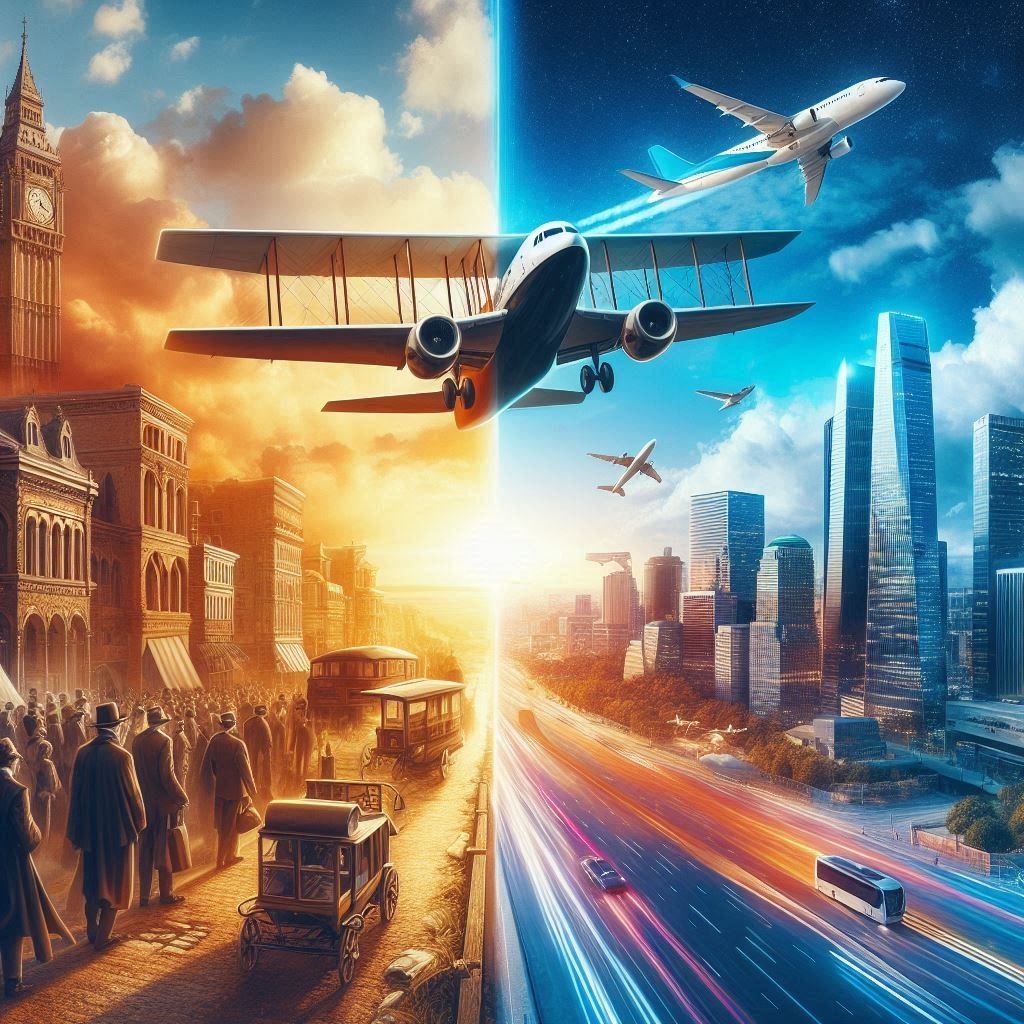How Aviation Changed the World A Century of Flight
Introduction
Aviation has dramatically transformed the world since the Wright brothers’ first powered flight in 1903. Over the past century, air travel has connected nations, facilitated commerce, enabled global tourism, and revolutionized warfare. From the earliest biplanes to today’s supersonic jets, aviation has shaped modern civilization in profound ways. This article explores the impact of aviation on society, economy, and global connectivity, showcasing how flight has become an integral part of human progress.
The Early Days: From Dream to Reality
Following the Wright brothers’ historic flight, aviation rapidly evolved. In the early 20th century, aircraft were primarily used for military reconnaissance and mail delivery. World War I saw the first widespread use of airplanes in combat, demonstrating their strategic potential. By the 1920s and 1930s, commercial aviation began to emerge, with airlines offering passenger flights on small, propeller-driven aircraft.
The Rise of Commercial Aviation
The post-World War II era marked a turning point in aviation. Advancements in technology, such as jet engines and pressurized cabins, made air travel faster, safer, and more comfortable. The 1950s and 1960s saw the advent of the Jet Age, with aircraft like the Boeing 707 and the Douglas DC-8 revolutionizing long-distance travel. Airlines expanded routes, making international travel more accessible than ever before.
The introduction of jumbo jets like the Boeing 747 in the 1970s further democratized air travel, allowing millions of people to explore the world. Airports grew into major transportation hubs, supporting economic growth and globalization. Today, airlines operate thousands of flights daily, connecting even the most remote corners of the planet.
Aviation’s Role in Globalization
One of aviation’s most significant contributions is its role in globalization. Air travel has facilitated international trade, allowing businesses to expand beyond borders. Perishable goods, pharmaceuticals, and high-value electronics can be transported across continents in a matter of hours, fueling economic growth.
Furthermore, aviation has brought cultures closer together, fostering international tourism and cultural exchange. Destinations once considered distant and unreachable are now just a flight away, leading to greater understanding and appreciation of diverse traditions and lifestyles.
The Evolution of Military Aviation
Aviation has also played a crucial role in military strategy. From dogfights in World War I to the advanced fighter jets of today, air superiority has been a decisive factor in conflicts. The development of long-range bombers, stealth technology, and unmanned aerial vehicles (UAVs) has transformed modern warfare, making air power a dominant force in global security.
The Environmental Challenge
While aviation has brought countless benefits, it also presents environmental challenges. Aircraft emissions contribute to climate change, prompting the industry to seek sustainable alternatives. Advances in fuel-efficient engines, electric and hydrogen-powered planes, and sustainable aviation fuels (SAFs) are paving the way for greener air travel. Governments and aviation organizations are working towards reducing the industry’s carbon footprint, ensuring a more sustainable future for flight.
The Future of Aviation
As technology advances, the future of aviation looks promising. Innovations such as supersonic travel, urban air mobility (including flying taxis), and space tourism are on the horizon. Companies like SpaceX, Boeing, and Airbus are investing in next-generation aircraft that promise to make air travel faster, safer, and more efficient.
Artificial intelligence, automation, and improved air traffic management systems will further enhance flight safety and efficiency. Additionally, the push for sustainability will drive the adoption of alternative energy sources, leading to a cleaner, more environmentally friendly aviation industry.
Conclusion
A century of flight has transformed the world in ways unimaginable before the Wright brothers’ first flight. Aviation has revolutionized travel, commerce, and warfare, bridging continents and bringing humanity closer together. As technology continues to evolve, the sky is no longer the limit—it is just the beginning. The next chapter in aviation promises even greater advancements, ensuring that flight remains a cornerstone of global progress for generations to come.




